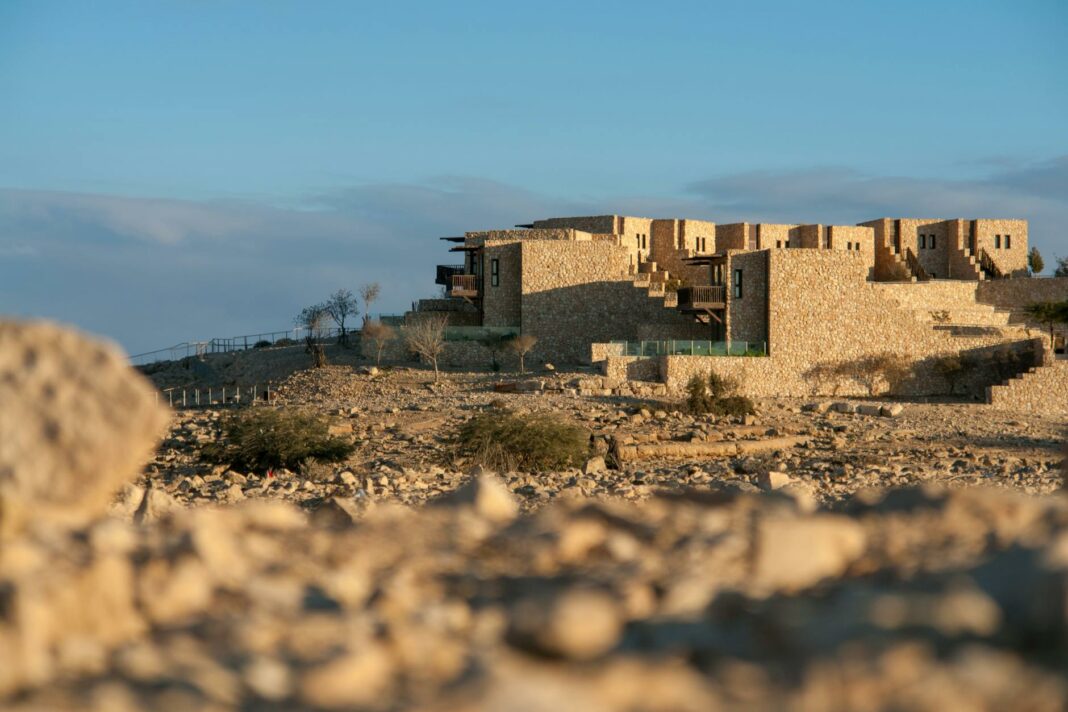Table of Contents
- Introduction
- What is a Dream Vacation?
- The Environmental Impact of Travel
- Embracing Responsible Tourism
- Positive Alternatives for Travel Enthusiasts
- Final Thoughts on Our Travel Choices
- Frequently Asked Questions
Introduction
Travel opens our eyes to new cultures and breathtaking scenery, yet it also beckons us to ponder the impact these adventures have on our precious planet. The concept of a dream vacation can evoke images of pristine beaches, lush jungles, or bustling cities. However, with the reality of climate change and environmental degradation coming to the forefront of our consciousness, it is essential to disentangle the allure of travel from its potential repercussions on Mother Earth. This blog post delves into the paradox of pursuing our dream getaway while considering its ecological footprint, ultimately guiding passionate travelers toward more sustainable choices.
It’s crucial to recognize that each journey we embark on carries a weight larger than just our luggage. By thoroughly exploring the consequences of our travel choices, we stand at an exciting crossroads – one where we can redefine what a dream vacation truly means. This discussion not only promotes awareness but also inspires individuals to adopt eco-friendly practices that protect the environment without sacrificing adventure, joy, or discovery. In doing so, we embrace the possibility of enjoying the world while safeguarding it for generations to come.
What is a Dream Vacation?
A dream vacation often conjures images of adventure and relaxation, a perfect blend of excitement and tranquility. Whether lounging on sun-kissed shores, scaling mountainous heights, or weaving through ancient streets, these experiences vary from person to person. However, as we curate our ideal escape, it’s vital to look beyond our immediate desires. Have you ever considered the implications of these travels on local communities and ecosystems? Sometimes, the pursuit of blissful experiences unintentionally fosters environments ripe for exploitation and environmental degradation. A holistic view encourages us to not just seek personal pleasure but to align our travels with broader, more responsible principles that enhance our experience without compromising the environment.
The idea of a dream vacation can often feel indulgent, transporting us to idyllic settings where our worries fade away. Yet, what if this pursuit comes at a significant cost? Infamous tourist traps, overcrowded attractions, and wildlife exploitation have become unfortunate consequences of unbridled wanderlust. By reflecting upon our individual aspirations and the type of experiences we truly value, it becomes evident that our dream vacations can transform into more meaningful adventures. They can allow us to connect with local cultures and environments in a respectful manner that honors their integrity. The concept is evolving, and as travelers, we have the power to shape this evolution for the better.
The Environmental Impact of Travel
Travel can bring thrills and enrich our lives, but it’s essential to confront the daunting realities that accompany our itineraries. From the immense carbon footprint generated by air travel to the often-unforeseen consequences of mass tourism in fragile ecosystems, every trip contributes to an overarching narrative of environmental impact. Studies have shown that tourism accounts for around 8% of global greenhouse gas emissions, leading to climate change that threatens countless habitats and species. It’s vital to confront this reality with honesty and transparency, as avoiding these conversations can perpetuate damaging habits.
Furthermore, the imbalance created by tourism can lead to more than just environmental degradation; cultural erosion often follows in the wake of increased foot traffic. Destinations that once held unique cultural significance may find their identities diluted under the weight of commercialization and standardization. Imagine exploring a quaint village, only to be engulfed by tourist-centric developments that take away its charm. The delicate balance between enhancing the local economy and preserving authenticity is a challenge that both travelers and the industry must address. Introspection leads to deeper awareness, prompting us to consider sustainable practices that preserve the beauty of our world and its cultures.
Embracing Responsible Tourism
The call for responsible tourism echoes louder than ever in today’s world, urging us to pivot our travel habits toward sustainability. What does that look like, you may ask? Responsible tourism encapsulates a mindset that allows us to appreciate destinations without causing harm. This involves supporting local businesses, respecting wildlife, and ensuring that our choices do not contribute to environmental degradation. By prioritizing eco-friendly accommodations and engaging in activities that celebrate and preserve local culture, you can enjoy fulfilling experiences while endorsing sustainability.
Consider the unique memories forged through meaningful interactions and authentic experiences that are rooted in respect for both nature and culture. Instead of idly snapping selfies devoid of context, why not engage with locals through a cooking class or craft workshop? Not only does this enrich your travel experience, but it also supports local economies and fosters a sense of community. In essence, by adopting responsible tourism practices, we become guardians of the places we visit, nurturing connections that transcend mere visits. Ultimately, these mindful decisions empower us to contribute positively to the world’s most beautiful corners.
Positive Alternatives for Travel Enthusiasts
Hoping to wander while treading lightly? There are several positive alternatives that allow travel enthusiasts to explore the world without leaving a detrimental mark. Eco-tourism, for instance, offers a wonderful avenue for adventurers looking to immerse themselves in nature while simultaneously protecting it. By participating in sustainable tours or volunteering for conservation efforts, travelers engage with the environment in a way that benefits both them and the ecosystems they adore. It’s an exhilarating way to connect, rejuvenate, and inspire action toward environmental stewardship.
Another fantastic option is embracing slower travel. Rather than hopping from one city to another, consider spending more time in a single location. This method fosters deeper interactions with local communities through longer stays, enhancing your experience while minimizing transport-related carbon emissions. Furthermore, local transport options, such as biking or walking, not only cut down on pollution but allow you to truly savor the surroundings. As you discover hidden gems and experience life like a local, you recognize the beauty in simplicity. Embracing alternatives like these leads to a richer travel experience and fosters connections that endure beyond the boundaries of a fleeting vacation.
Shaping Our Travel Choices for a Sustainable Future
With every travel decision we make, we hold the power to either protect or harm the planet we adore. This transformative journey toward sustainable tourism begins with each of us acknowledging the impact of our choices and embracing change; it ultimately cultivates a culture of conscious travelers. The notion of what constitutes a dream vacation shifts beautifully when we align our aspirations with principles of sustainability and responsibility. It’s not about forgoing exploration; rather, it’s about shifting our perspectives to ensure that our journeys foster a world worth cherishing.
Traveling should be an adventure that fulfills our dreams while honoring the ecosystems and communities that support us. By embracing responsible tourism and supporting eco-friendly practices, we ensure that future generations can also relish in the wonders of our world. As our understanding deepens, so does our commitment to leaving only footprints behind, allowing our adventures to remain vibrant and alive. Ultimately, the quest for a dream vacation becomes intertwined with our commitment to nurturing and preserving the landscapes and cultures we cherish.
Frequently Asked Questions
What is responsible tourism?
Responsible tourism refers to the practice of being conscious of the impact our travel choices have on the environment, local economies, and cultures. It emphasizes sustainable practices that protect our destinations while allowing travelers to enjoy fulfilling experiences.
How can I reduce my carbon footprint while traveling?
To reduce your carbon footprint, consider opting for direct flights, utilizing public transportation, and choosing eco-friendly accommodations. Engaging in slower travel and offsetting your emissions through reputable offsets can also contribute to sustainability.
Are there specific destinations that promote eco-tourism?
Yes! Places like Costa Rica, Iceland, and New Zealand are renowned for their eco-tourism initiatives, offering travelers opportunities to engage with nature responsibly, promote conservation efforts, and support local communities.
Can individual travelers make a difference in combating environmental issues?
Absolutely! Each traveler’s choices collectively create significant impacts. Supporting local businesses, choosing sustainable tours, and advocating for conservation can inspire positive change and foster awareness in the travel industry.
What can I do to support local communities while traveling?
Engage with local organizations, participate in cultural events, and shop from local artisans. Opting to stay in locally-owned accommodations and enjoying meals at family-run establishments also helps stimulate the economy and preserve cultural heritage.
Image Credit: Pexels





